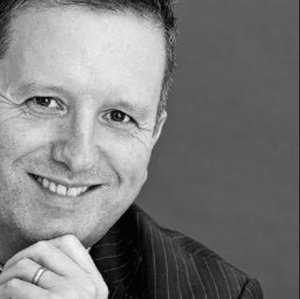 THE meaning of the word paradox is an ‘an apparent contradiction’.
THE meaning of the word paradox is an ‘an apparent contradiction’.
Great examples of paradoxes are “I can resist anything but temptation,” Oscar Wilde, “what a pity that youth must be wasted on the young,” George Bernard Shaw, or in culinary terms the expression ‘Jumbo Shrimp’.
I’m suggesting that the word ‘Mindfulness’ is a paradox in itself as the whole essence of practicing mindfulness is to empty our minds of thoughts and not to fill them.
Therefore a more appropriate term would be ‘mindemptyness’. Of course I jest and even my computer is shouting at me that no such word exists.
When we look up the word ‘Mindfulness’ in the dictionary we get a clearer insight into the real meaning of the word and a clearer picture of what it is all about. You will find that Mindfulness is…“The quality or state of being conscious or aware of something.”
Even though Mindfulness is currently a huge ‘buzz word’ it has been in use for decades if not centuries and always in the context or awareness.
I even remember as a child (about 40+ years ago!!), if I tripped over a step, my mother would quickly tell me to be ‘Mindful’ and to ‘watch what I was doing’ – in simple language to pay attention and to be aware of what I was doing.
So ‘Awareness’ is the key to unlocking the real meaning of mindfulness. This ‘Awareness’ is not really something that you ‘Do’ in fact it is something that you practice.
For instance you don’t ‘Do’ Tennis – You practice it and then you play. Similarly you don’t ‘Do’ cooking, you practice it and then you can cook. To carry this image on you don’t ‘Do’ Mindfulness, you practice it and then you become ‘Mindful’
The easiest and most popular way of practicing ‘Mindfulness’ is to become aware of the presence of our breath.
One follows the route of one’s breath from the nostrils right down into the stomach area and watches the breath as it is released out again whether it be through the nose or the mouth.
It is best practiced breathing slowly and paying due attention to things like the temperature changes that occur in the air from cold when entering and warm when releasing and also the expansion and contraction of the stomach muscles.
Just like anything else there are many and varied techniques. These come with practice.
This helps us
1. To practice paying attention to minute details
2. To calm everything down within ourselves as we breathe slowly
3. To increase awareness within ourselves and thus more awareness of the world around us.
This is what is commonly known as ‘Becoming aware of the Inner Self’
It is a most rewarding and powerful practice and I would highly recommend it to anyone who is experiencing any form of stress in their lives.
The man who is most credited with bringing the formal practice of Mindfulness into the Western World is a man by the name of Jon Kabat Zinn.
It is basically the practice of meditation and one can practice mindfulness of not just ‘The Breath’ but also of what one ‘Sees, Hears, Tastes, Touches or Smells.
In other words following to the letter the advice of our ancestors i.e. ‘Come to your senses’.
I firstly became aware of this practice when I read a book called ‘The Power of Now’ by Eckhart Tolle and I believe that this book as now sold over 30 Million copies. Now that speaks for itself.
• Next week I am going to write about – The Power of Now

